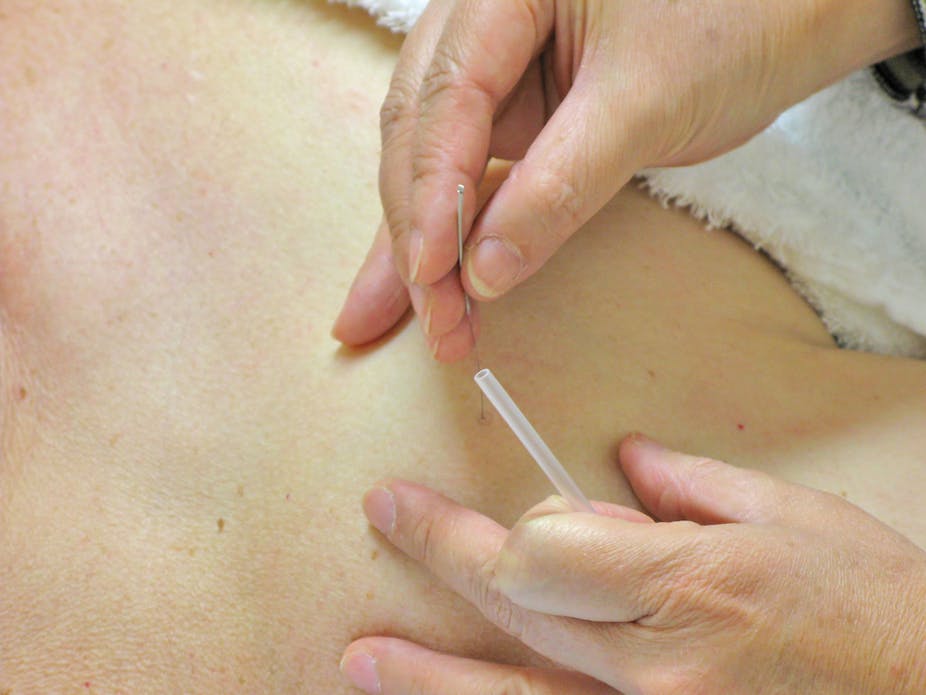The international credibility of Australia’s universities is being undermined by the increase in the “pseudoscientific” health courses they offer, two academics have written in the latest edition of the Medical Journal of Australia.
The strongly-worded editorial by Alastair MacLennan, a professor of obstetrics and gynaecology at the University of Adelaide, and Robert Morrison of Flinders University, is the latest shot in the acrimonious exchange between proponents of traditional medicine and practitioners of complementary and alternative varieties.
Professor MacLennan and Dr Morrison are both founding members of Friends of Science in Medicine, a collection of more than 460 people and organisations who say they are dedicated to fighting the growth of pseudoscience in medicine. In January the group wrote a letter to every vice-chancellor in Australia asking for a review of their health science courses to “ensure that primacy is given to scientific principles based on experimental evidence”.
In their editorial, Professor MacLennan and Dr Morrison write that academics at universities with courses such as homeopathy, iridology, reflexology, kinesiology, healing touch therapy, aromatherapy and energy medicine need to “stand up for science”.
“Pseudoscientific courses sully the genuinely scientific courses and research conducted at the same institutions. Their scientists and students should be concerned by any retreat from the primacy of an experimental, evidence-based approach in science and medicine.”
Alarmingly, they said, some chiropractors now extended their manipulation of the spine to children, and claimed that this could cure asthma, allergies, bedwetting, attention deficit hyperactivity disorder, colic, fever and numerous other problems, and could serve as a substitute for vaccination.
The authors cited a number of courses - including a Graduate Certificate in Medical Acupuncture at Monash University, a Bachelor of Health Science in Traditional Chinese Medicine at the University of Technology, Sydney, and a Bachelor of Health Science (Acupuncture and Chinese Manual Therapy) at RMIT University - as evidence that the problem was spreading.
The acting head of RMIT University’s School of Health Sciences, Dr Ray Myers, has defended the school’s health science programs, which he said promoted “evidence-based education and practice”.
Chinese medicine, chiropractic and osteopathy were all government regulated, Dr Myers said. RMIT’s education program incorporated the “best available evidence, while promoting further clinical research into these treatments.”
The National Herbalist Association of Australia has also denounced the campaign to pressure universities and health funds to reject complementary medicine. Association President Leah Hechtman said that naturopathic and Western herbal medicine practitioners should be integrated into the healthcare system.
“To achieve this, we need to increase our evidence base which requires university training. Without university training, research opportunities for practitioners and complementary medicines will reduce. To exclude naturopathic and Western herbal medicine courses from undergraduate or post graduate programs at Australian Universities is irresponsible.”
In their editorial, Professor MacLennan and Dr Morrison provide a list of complementary and alternative medicine courses, units and clinics at Australian universities and TAFEs:
Australian Catholic University: Introduction to Complementary Nursing Therapy
Charles Sturt University: Bachelor of Health Science (Complementary Medicine)
Canberra Institute of Technology: Advanced Diploma of Naturopathy
Central Queensland University: Bachelor of Science (Chiropractic); Master of Chiropractic Science
Curtin University: Evidence Based Complementary Medicine
Edith Cowan University: Complementary and Alternative Medicines
Macquarie University: Bachelor of Chiropractic Science; Master of Chiropractic; chiropractic clinics
Monash University: Graduate Certificate in Medical Acupuncture
Murdoch University: Bachelor of Science in Chiropractic; Postgraduate Diploma in Sports Chiropractic; chiropractic clinic
RMIT University Bachelor of Health Science (Chiropractic); Master of Clinical Chiropractic; Bachelor of Applied Science (Chinese Medicine/Human Biology); Bachelor of Health Science (Acupuncture and Chinese Manual Therapy); Master of Applied Science (Acupuncture); Master of Applied Science (Chinese Herbal Medicine); Energy Medicine
Southern Cross University: Bachelor of Clinical Sciences (majors in complementary medicine, naturopathy, osteopathy); SCU Health Clinic
Sunshine Coast TAFE: Certificate in Aromatherapy; Diploma of Reflexology; Certificate and Advanced Diploma in Ayurvedic Lifestyle Consultation
University of New England: Bachelor of Applied Health; Graduate Diploma of Health Science (Herbal Medicine); Master of Health Science (Herbal Medicine)
University of Newcastle: Complementary Therapies in Healthcare
University of Technology, Sydney: Bachelor of Health Science in Traditional Chinese Medicine; traditional Chinese medicine/acupuncture clinics
University of Western Sydney: Bachelor of Applied Science (Naturopathic Studies); Graduate Diploma in Naturopathy; Master of Health Science (Traditional Chinese Medicine); UniClinic

